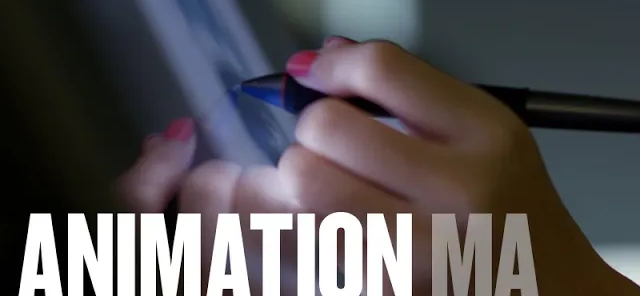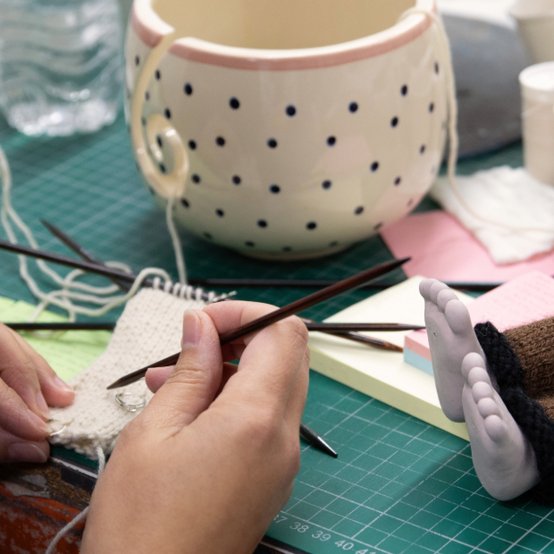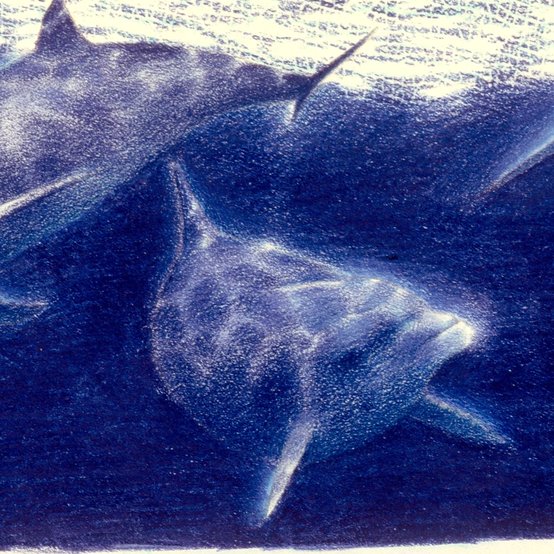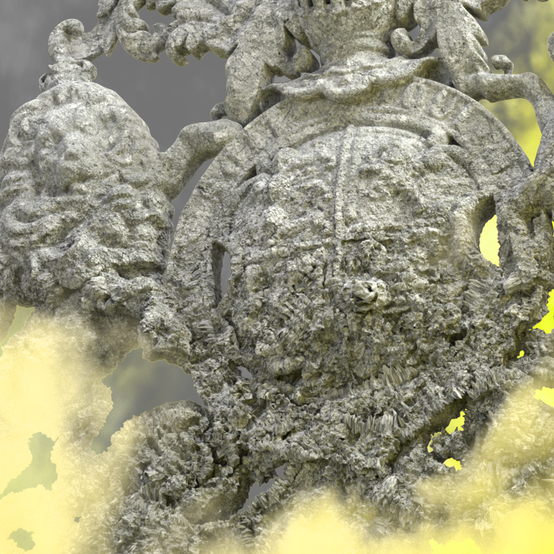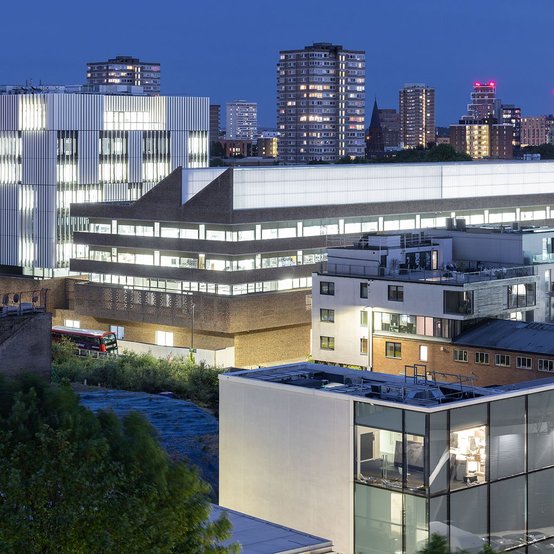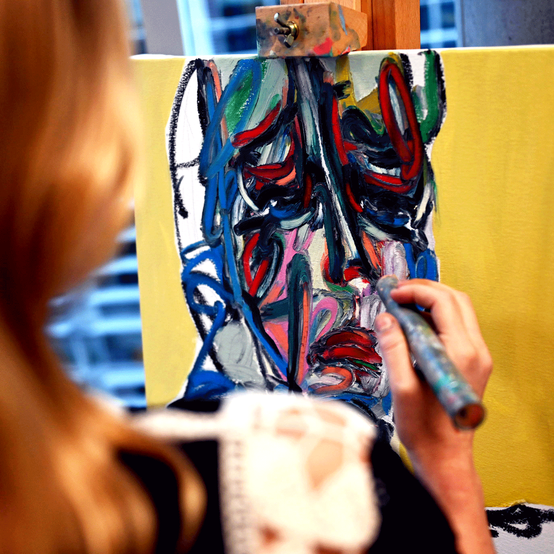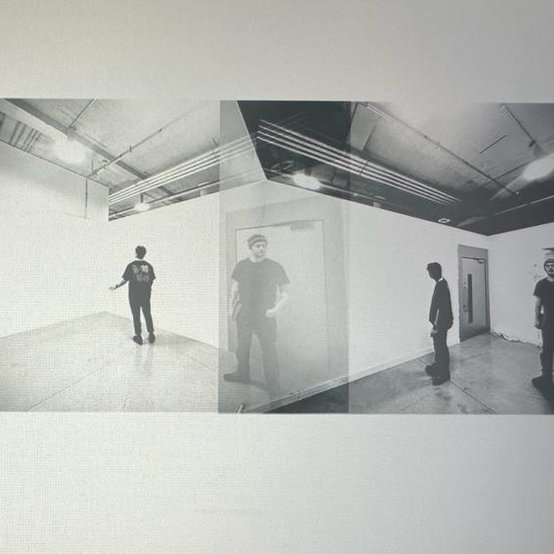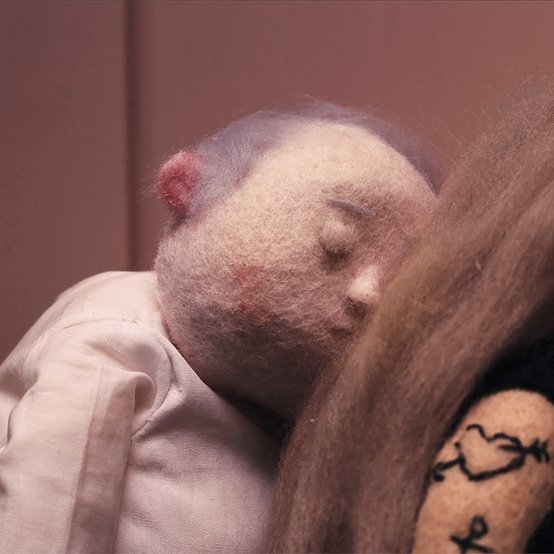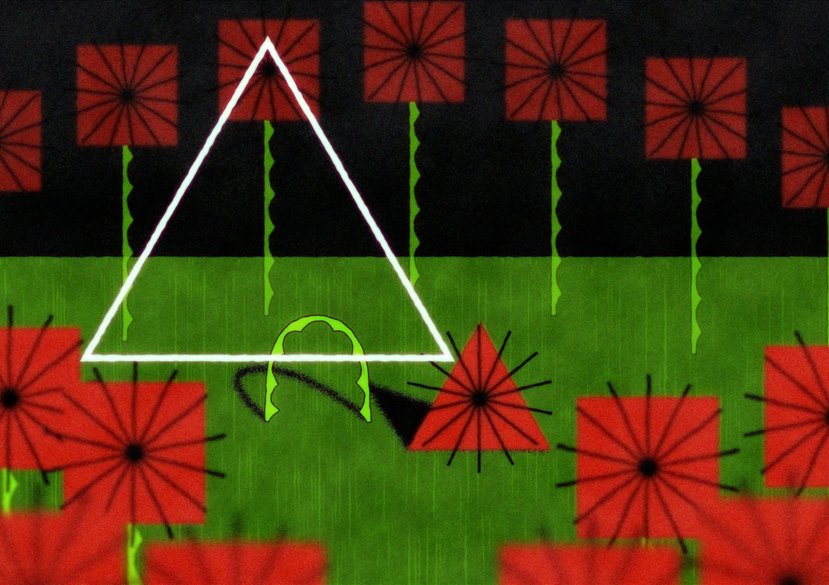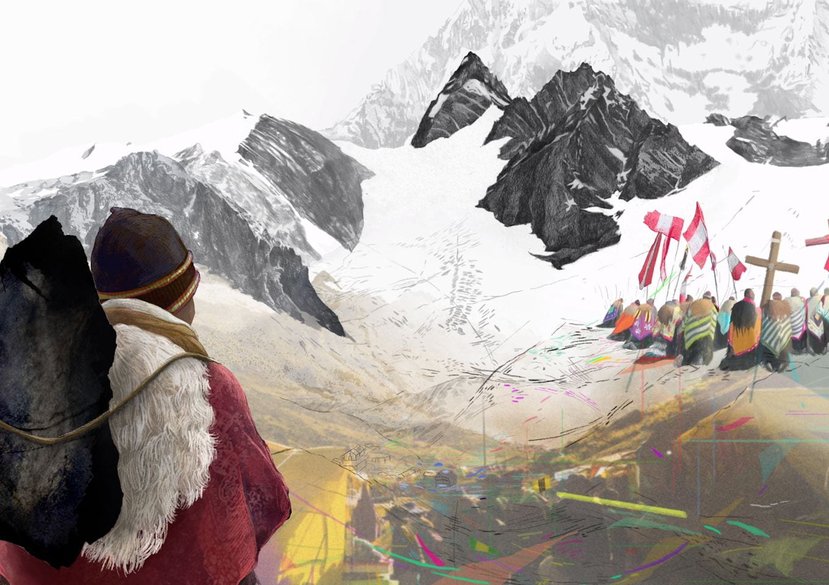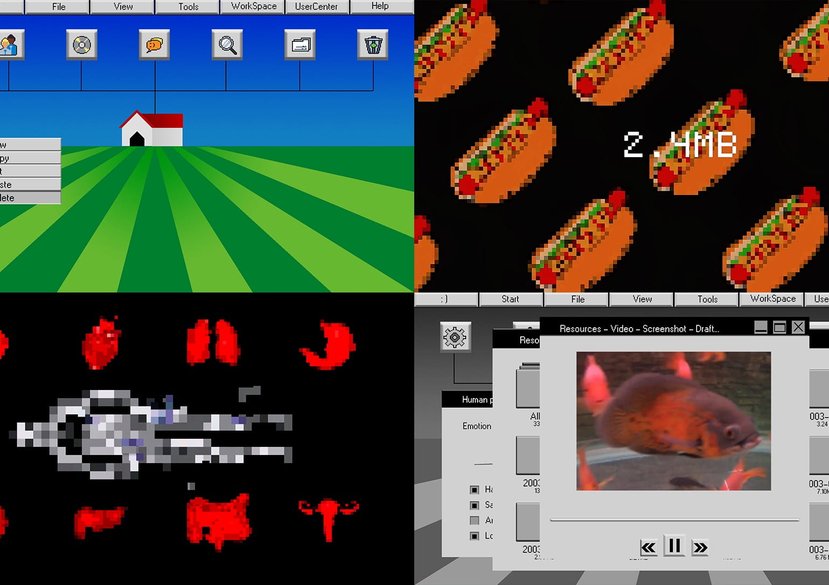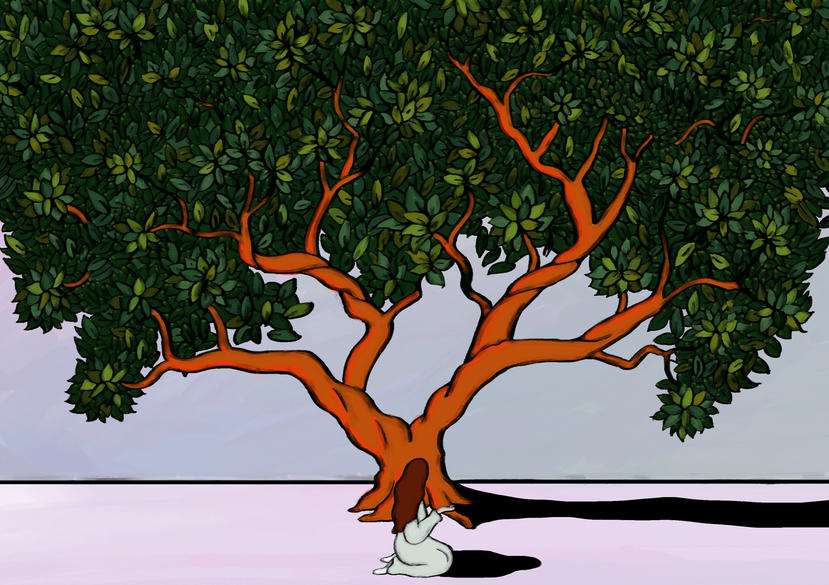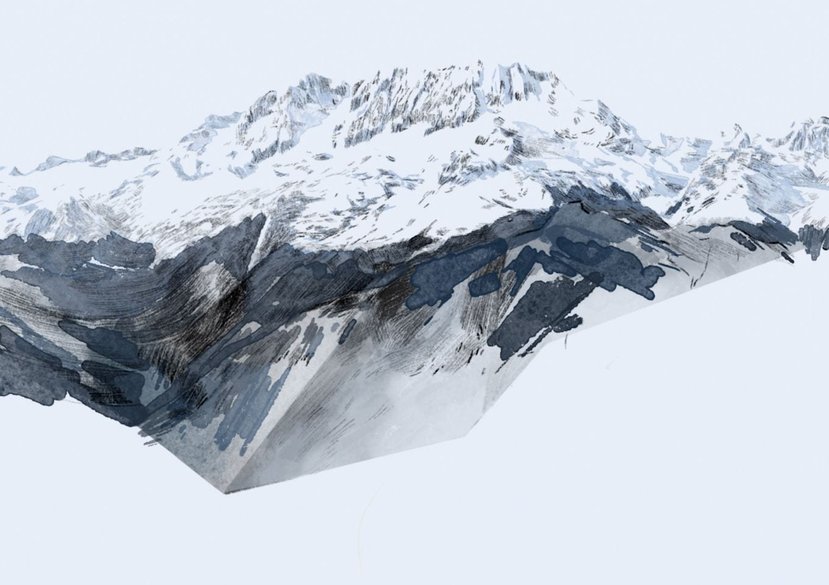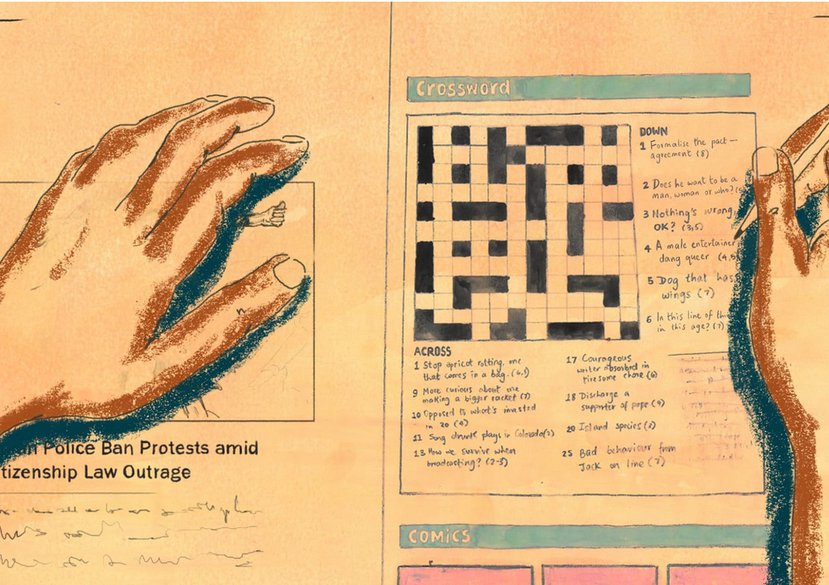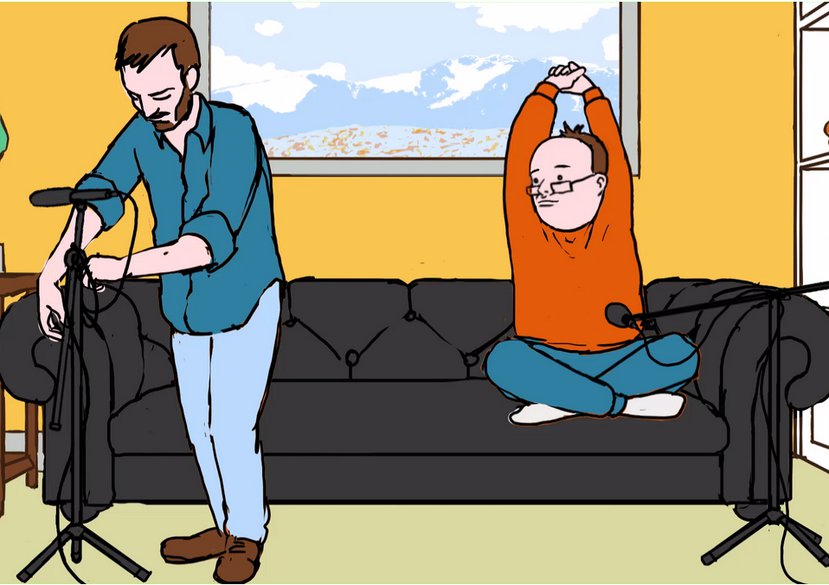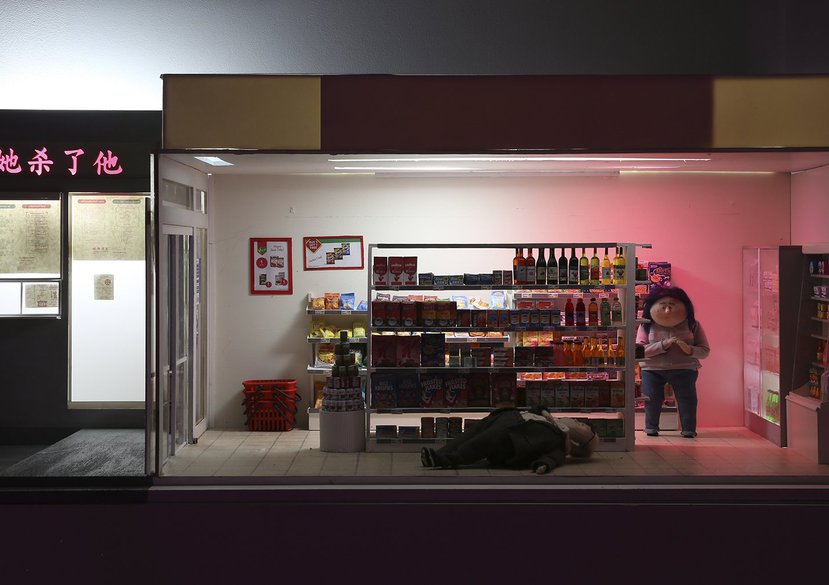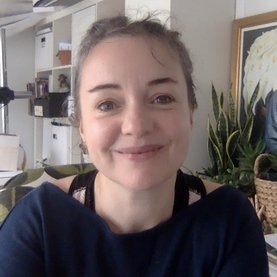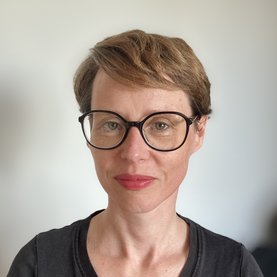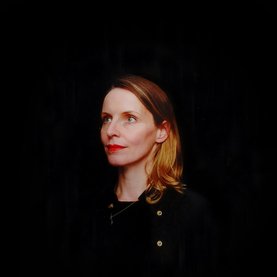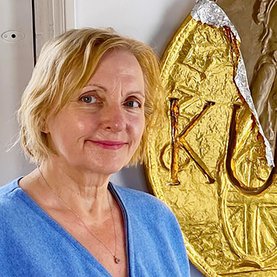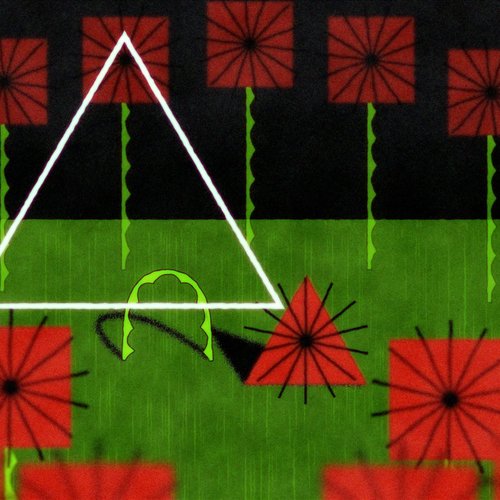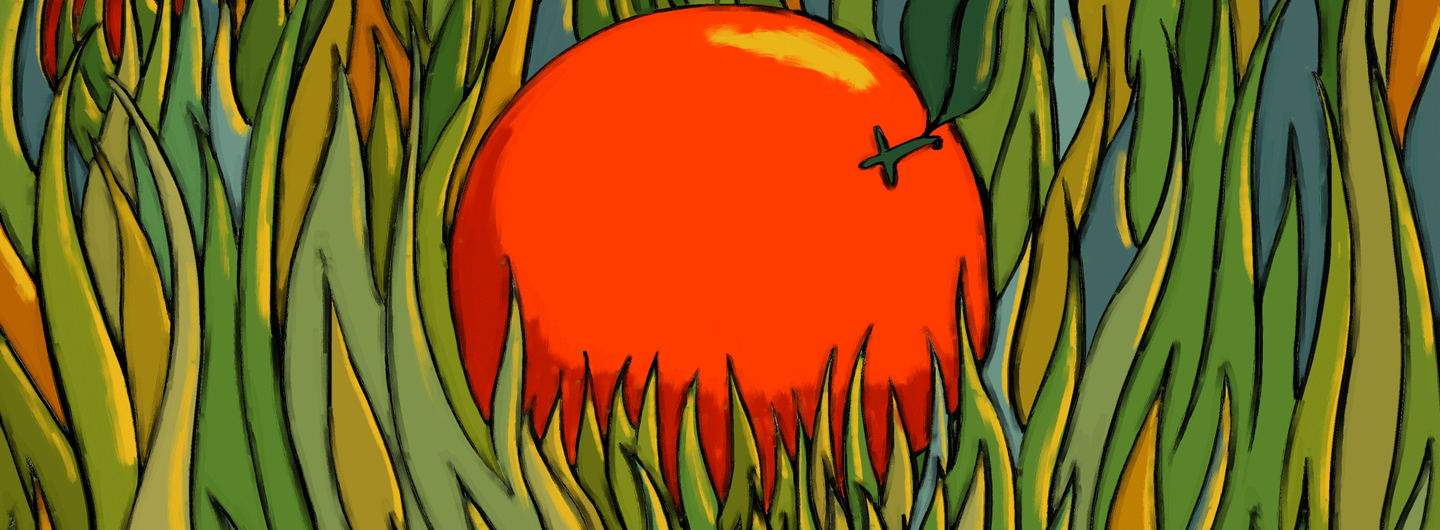
Overview
Renowned for artistic excellence and risk-taking
Key details
- 180 credits
- 1 year / 45 week programme
- Full-time study
School or Centre
Current location
- White City
Next open event
- 2 Feb 2026
- Join Online Portfolio Week
Next application deadline
- 17 Mar 2026
Bring your vision to life with our director-led approach
- Join a community that fosters critical and creative artistic investigation through a diverse range of practices, spanning analogue, digital, and hybrid forms.
- Develop your authorial voice, situated within contemporary discourse and the field of expanded animation.
- Participate in a range of industry and academic events, working alongside a cohort informed by different cultures, politics, traditions, and future aspirations.
The RCA MA Animation programme fosters critical and creative artistic investigation through a diverse range of practices, spanning analogue, digital, and hybrid forms.
Whether you’ve worked in animation for several years or are just starting out, we’ll challenge you to push the boundaries of what’s possible. To find a way of working that resonates with you, you might experiment with analogue and digital tools, from motion capture and XR to pre-cinematic, classical, and stop motion animation.
Take part in serious play
Rooted in rigorous studio practice and critical inquiry, MA Animation at the RCA nurtures imaginative leadership and diverse material exploration. Here animation is not just movement but thought made visible, emerging from a global cohort whose voices will shape the forms evolving future.
“We’re not just animators or technicians; we’re filmmakers, writers, directors, storytellers. It’s a holistic approach.”
– Rory Waudby-Tolley, RCA Animation Associate Lecturer
Location
From June 2027, we expect to end our lease of our White City campus and become a two campus university based in Kensington and Battersea.
For Animation, this will mean a relocation to our Kensington campus in 2027. Find out more about the moves here.
Explore further and apply now
Catch the replays from our latest online Open Day.
Watch portfolio advice from the programme team.
Applications are now open for September 2026 entry. Round 2 application deadline: 17 March 2026, 12 noon (UK time). Apply now.
Student and alumni stories
Gallery
Staff
Facilities
The School of Communication is currently located on our White City site.
View all facilitiesOur mixed-use studios encourage collaborative working, thought, awareness and action. In addition, you have access to craft and technical workshop areas and excellent technical support in the College.
Our alumni
Our alumni form an international network of creative individuals who have shaped and continue to shape the world. Click on each name to find out more.
Where will the RCA take you?More details on what you'll study.
Find out what you'll cover in this programme.
What you'll cover
What will I learn?
The curriculum revolves around practice-as-research, experimentation, and constructive critique, with a discursive approach emphasising the development of creative time-based content through collaboration, questioning, exchange, and process exploration. Our world-class programme team and state-of-the-art facilities support your journey, enabling you to explore enduring historical relations with material-based media like painting, drawing, illustration, and sculpture – the core of animation practice. Digital tools, deep learning processes, sound, display practices, and film language enhance these traditional media. We engage with various screen-based and related forms, including installations, projection mapping, VR, AR, extra-cinematic animation, theatre environments, sci-tech visualisation tools, and the spatial politics of citizen science games or apps. You will grasp opportunities from animation’s increasing pervasiveness and shape how your audiences perceive and understand the worlds and experiences you create. You will experience a collaborative professional environment and build an equitable, encouraging, challenging community of practitioners with your peers from other programmes.
Throughout the programme, we challenge and encourage you to engage in innovative practice-oriented research, paying close attention to the nuances of cultures, ethics, diversity, identities, traditions, environments, and futures. Our students engage in diverse interdisciplinary contexts, spanning drama, literature, philosophy, fine and applied arts, film and media theory, art history, STEM disciplines, and architecture. By deepening your understanding of animation, you will develop a critical approach to your practice, intellectually challenging yourself with fresh ideas to broaden and influence social, political, and cultural perspectives through creative engagement.
MA Animation fosters your aspirations and creative transformations as an ethically minded thinker and professionally astute creative artist, filmmaker and problem solver. As part of a vibrant community, you will engage in dialogues exploring new perspectives on the persuasive potential of animation in the digital humanities and STEM disciplines.
Programme structure
The programme has three terms with a combination of programme, School and College units that seek to enable you to build a clear sense of communication methods, practices and contexts in relation to your own work.
Term 1
In Term 1, you will undertake the unit Animation Forms, Methods and Contexts (45 credits), which starts with creative community-building activities followed by practice-as-research exploratory workshops as ‘serious play’ to develop skills refinement and knowledge development through collaborative and individual projects. Your sound and image skills are expanded on through technical inductions, workshops and meetings with technical staff. You are expected to engage in collaboration, experimentation and conceptual thinking, and to develop sensitivity to the subjects represented. In tandem with the workshops, Articulation Lectures provide encounters with aesthetic, historical, contemporary and formal contexts of interdisciplinary animation theory and practices. In the Critical Explorations Group seminars you will consider, investigate and discuss a range of approaches to image, sound and text-based materials across animation and its many related creative and intellectual fields to explore rationales, criteria and creative methodologies. You will document and evidence these in your Virtual Studio Desk.
Across terms 1 and 2, you will participate in AcrossRCA (30 credits). This unit aims to support you in meeting the challenges of a complex, uncertain and changing world by bringing you together to work collaboratively in cross-programme interdisciplinary teams. In your team you will develop a self-initiated themed project, informed by expertise within and beyond the College. These projects will challenge you to collectively use your intellect and imagination to address key cultural, social, environmental and economic challenges. In doing so, you will develop and reflect on the abilities required to translate knowledge into action, and help demonstrate the contribution that the creative practices can make to our understanding and experience of the world.
Term 2
In Term 2, the Making Worlds with Others (30 credits) School-wide unit will allow you to work alongside students within and across the School. Working from the perspective of your individual practices and disciplines, you will develop a project that engages with others and/or creates mutual exchanges of ideas and understandings, with the intention to create critically engaged situations and/or outcomes resulting in convivial knowledge exchange. Through collaborative learning and making, the unit will support you in understanding knowledge exchange and public engagement and how you are to situate your own practice in these territories. The unit will also ask you to question how socially engaged practice can contribute to cultural understanding, co-researching and co-creating methods for knowing with, not knowing about.
You also take Critical Non/Fiction and Experimental/Expanded Practices (15 credits) over Term 2, and begin working on intellectual development and refinement for your Independent Research Project supported by academic and technical staff. The Critical Intensives is a series of interdisciplinary groups notionally named: Non/Fiction and Experimental/Expanded, in which you generate, present and share project-specific research methods for and approaches to your negotiated independent research project agreed with your tutors. This also involves selecting, evaluating and critiquing research contexts, societies, cultures, identities, traditions and human/non-human relationships as appropriate with your peers. The term is research-intensive, and includes developing a detailed production plan. Group and individual tutorials and a critique provide opportunities to receive feedback, as well as an assessed Project Proposal and Production Plan. You will further refine your skills in technical services workshops and self-arranged meetings with technical staff to develop your Technical Plan.
Term 3
Term 3 is when you create and complete your 60-credits Independent Research Project (IRP). You are expected to work independently whilst setting your own aims, objectives, contexts and deadlines. The IRP is a programme of self-directed independent study that is supported by subject-based group and personal tutorials and technical tutorials, studio dialogue and student-led events. During the term, you are expected to realise these ambitions in a sustained and reflective process of ‘thinking through making’ and develop a body of work evidencing your rationale and priorities as a critical, creative practitioner. Your final body of work should evidence a considered process of selecting, testing and making use of appropriate materials and technical processes sound and image for screen-based and/or expanded moving image practice. This work will then be contextually curated and prepared for presentation in a public-facing event at the end of Term 3. The Unit includes Professional Practice curriculum and events to prepare and equip you for your future after graduation.
This MA is delivered over 45 weeks.
AcrossRCA
AcrossRCA is a compulsory 30-credit unit which is delivered as part of all MA programmes.
Situated at the core of your RCA experience, this ambitious interdisciplinary College-wide unit supports you in responding to the challenges of complex, uncertain and changing physical and digital worlds. Developed in response to student feedback, AcrossRCA creates an exciting opportunity for you to collaborate meaningfully across programmes.
Challenging you to use your imagination and intellect to respond to urgent contemporary themes, this ambitious unit will provide you with the opportunity to:
- make connections across disciplines
- think critically about your creative practice
- develop creative networks within and beyond the College
- generate innovative responses to complex problems
- reflect on how to propose ideas for positive change in local and/or global contexts
AcrossRCA launches with a series of presentations and panel discussions from acclaimed speakers who will introduce the themes and act as inspirational starting points for your collaborative team response.
Delivered online and in-person across two terms, the unit has been designed to complement your disciplinary studies and to provide you with a platform to thrive beyond graduation.
Requirements
What you need to know before you apply
The programme attracts individuals from a notably wide range of disciplines who wish to explore their fields through animation, including, for example, film, architecture, graphic design, literature, communication arts, performance, art history, computing, illustration, pure and applied sciences and maths or fine art, or a combination of these.
Candidates are selected entirely on merit and applications are welcomed from all over the world. The selection process considers creativity, imagination and innovation as demonstrated in your application and portfolio, your technical animation skills and your potential to benefit from the programme and to achieve high MA standards overall.
Candidates are selected on the basis of a body of work that demonstrates an advanced understanding of the subject and sufficient technical animation and moving image skills to realise intentions, evidence of commitment to the subject, intellectual curiosity, open-mindedness, the ability to collaborate, to engage in debate and respond to constructive criticism, and the ability to engage in sustained and consistent study. We also want enthusiasm for your practice, commitment and a strong sense of personal responsibility for your subject matter and your own learning and development.
What's needed from you
Portfolio requirements
Please upload up to three projects. These must include animation / moving image but may also include other media and material forms where relevant, such as illustration sculpture installation etc. Please avoid using portfolio templates; we want to see how you curate your works imaginatively and clearly.
To support each of the three projects, you may add up to three additional items to show the project’s research and development. Show us your conceptual research process and practices, and demonstrate a clear relation between imagination, contextual critical engagement and making. Each of these three additional items should be uploaded and not exceed a maximum of five PDF pages with images, descriptive captions and concise written comments. One of these additional items can be a maximum 1-minute showreel of excerpts of additional work not submitted in your three projects. If you include a showreel, please indicate this clearly in the captions.
We would like you to submit complete films rather than clips where possible, up to a maximum of 10 minutes in total for all three projects, including any 1-minute showreel.
It is important that you ensure all project materials and films are uploaded. Please do not include external links as we will only view what has been uploaded and will not refer to external sites.
All projects should be accompanied by a concise written description communicating a coherent project trajectory and demonstrating your skills and aptitude. Please provide explicit and clear Captions in the justification area for each project (maximum 100 words); and to each image/item, plus Title, Medium, Year, Size (images), Length (min) (films). Indicate any areas of your work you would like to develop further. Ensure you make clear your specific role in any collaboration.
Personal statement
Please provide a 300-word written personal statement that addresses the following points:
- Introduce yourself, your interests and your motivations for applying to the Royal College of Art, and to this programme in particular.
- Briefly summarise any educational background and professional experience to date that will support your application.
- Tell us what you want to do in the future.
Video requirements
As part of the application process, you must submit a video of no more than 2 minutes.
We want to know why you are applying to the MA Animation and what you want to achieve. Please tell us about your artistic, social, political, and/or contextual interests.
- What are your aims and ambitions for your practice?
- What types of media and technologies do you want to explore?
- Does your work fit in a specific genre or is it interdisciplinary?
Please articulate your intellectual and research process and clearly relate this to an example or two from your portfolio. Tell us about the aesthetic, technical, conceptual and critical perspectives that underpin your work. Your video should communicate a sense of you and your creative journey and aspirations.
We want to know why you are applying to the MA Animation and what you want to achieve. Please use this opportunity to tell us what is not already in your written statement. Your video should communicate a sense of you and your creative journey and aspirations. We want to hear you talk articulately, passionately and intelligently about your motivations for your practice, your relevant personal interests that drive you and what you want or hope to achieve with your work.
- What are your aims and ambitions for your future practice?
- What is your position as an artist in contemporary contexts, and what are your values?
- Which critical, theoretical or philosophical writings or authors have influenced your work, and why?
- Referring to one item in your portfolio, please tell us about your work's main artistic, social, political, ethical and/or environmental perspectives through your intellectual and research process, and make a clear relation between this and the practice work. Tell us about any challenges and how you dealt with them
- What types of media and technologies do you want to explore, and why?
- Why do you want to study MA Animation specifically, at this point in time?
English-language requirements
If you are not a national of a majority English-speaking country you will need the equivalent of an IELTS Academic or UKVI score of 6.5 overall (with a minimum of 5.5 in every component). Students achieving a grade of at least 6.0, with a grade of 5.5 in the Test of Written English, may be eligible to take the College’s English for Academic Purposes course to enable them to reach the required standard.
You are exempt from this requirement if you have received a 2.1 degree or above from a university in a majority English-speaking nation within the last five years.
If you need a Student Visa to study at the RCA, you will also need to meet the Home Office’s minimum requirements for entry clearance.
Fees & funding
For this programme
Fees for new students
Fees for September 2026 entry on this programme are outlined below. From 2021 onward, EU students are classified as Overseas for tuition fee purposes.
Home
Overseas and EU
Deposit
New entrants to the College will be required to pay a non-refundable deposit in order to secure their place. This will be offset against the tuition fees. Deposits for 2026 entry will be confirmed in September 2025; 2025 deposit rates below for reference.
Home
Overseas and EU
Progression discount
For alumni who have completed an RCA Graduate Diploma and progress onto an RCA MA programme, a progression discount of £1,000 is available. For alumni progressing from an RCA Master's to another RCA Master's, a progression discount of £2,000 is available (£1,000 per year for part-time programmes).
* Total cost is based on the assumption that the programme is completed in the timeframe stated in the programme details. Additional study time may incur additional charges.
Scholarships
Scholarships
Each year, the RCA scholarship programme supports hundreds of students. The following scholarships are confirmed for this programme, with additional awards added throughout the year.
Eranda Rothschild Scholarship
Eligible programmes: Writing MA, Animation MA, Design Products MA
Other criteria: None
Eligible fee status: Home fee status
Value: Full fees and maintenance
GREAT Scholarship
Eligible programmes: Interior Design MA, City Design MA, Environmental Architecture MA, Ceramics & Glass MA, Contemporary Art Practice MA, Curating Contemporary Art MA, V&A/RCA History of Design MA, Jewellery & Metal MA, Painting MA, Photography MA, Print MA, Sculpture MA, Writing MA, Animation MA, Digital Direction MA, Information Experience Design MA, Visual Communication MA, Design Products MA, Fashion MA, Intelligent Mobility MA, Service Design MA, Textiles MA, Creative Education MEd, Communication MFA, Master of Research RCA MRes, Design Futures MDes, Arts & Humanities MFA, Design Practice MArch
Other criteria: None
Eligible fee status: Overseas fee status
Value: £10,000 toward fees
House of Fraser Bursary
Eligible programmes: Architecture MA Architecture (ARB/RIBA Part 2), Interior Design MA, City Design MA, Environmental Architecture MA, Ceramics & Glass MA, Contemporary Art Practice MA, Curating Contemporary Art MA, V&A/RCA History of Design MA, Jewellery & Metal MA, Painting MA, Photography MA, Print MA, Sculpture MA, Writing MA, Animation MA, Digital Direction MA, Information Experience Design MA, Visual Communication MA, Design Products MA, Fashion MA, Innovation Design Engineering MA/MSc, Intelligent Mobility MA, Service Design MA, Textiles MA
Other criteria: None
Eligible fee status: Home fee status
Value: £10,000 toward fees
RCA President & Vice-Chancellor’s International
Eligible programmes: Architecture MA Architecture (ARB/RIBA Part 2), Interior Design MA, City Design MA, Environmental Architecture MA, Ceramics & Glass MA, Contemporary Art Practice MA, Curating Contemporary Art MA, V&A/RCA History of Design MA, Jewellery & Metal MA, Painting MA, Photography MA, Print MA, Sculpture MA, Writing MA, Animation MA, Digital Direction MA, Information Experience Design MA, Visual Communication MA, Design Products MA, Fashion MA, Innovation Design Engineering MA/MSc, Intelligent Mobility MA, Service Design MA, Textiles MA, Creative Education MEd, Communication MFA, Master of Research RCA MRes, Design Futures MDes, Arts & Humanities MFA, Design Practice MArch
Other criteria: Applicants from Australia, Brazil, Canada, Chile, Colombia, Denmark, Egypt, France, Germany, Greece, Hong Kong, India, Indonesia, Israel, Italy, Japan, Malaysia, Mexico, Netherlands, Nigeria, Pakistan, Palestine, Poland, Portugal, Saudi Arabia, Singapore, South Korea, Spain, Switzerland, Taiwan, Thailand, Turkey, UAE, USA
Eligible fee status: Overseas fee status
Value: £9,000 toward fees
RCA President & Vice-Chancellor’s UK Scholarship
Eligible programmes: Architecture MA Architecture (ARB/RIBA Part 2), Interior Design MA, City Design MA, Environmental Architecture MA, Ceramics & Glass MA, Contemporary Art Practice MA, Curating Contemporary Art MA, V&A/RCA History of Design MA, Jewellery & Metal MA, Painting MA, Photography MA, Print MA, Sculpture MA, Writing MA, Animation MA, Digital Direction MA, Information Experience Design MA, Visual Communication MA, Design Products MA, Fashion MA, Innovation Design Engineering MA/MSc, Intelligent Mobility MA, Service Design MA, Textiles MA, Creative Education MEd, Communication MFA, Master of Research RCA MRes, Design Futures MDes, Arts & Humanities MFA, Design Practice MArch
Other criteria: None
Eligible fee status: Home fee status
Value: £5,000 toward fees
The RCA Sanctuary Scholarship
Eligible programmes: Interior Design MA, City Design MA, Environmental Architecture MA, Ceramics & Glass MA, Contemporary Art Practice MA, Curating Contemporary Art MA, V&A/RCA History of Design MA, Jewellery & Metal MA, Painting MA, Photography MA, Print MA, Sculpture MA, Writing MA, Animation MA, Digital Direction MA, Information Experience Design MA, Visual Communication MA, Design Products MA, Fashion MA, Intelligent Mobility MA, Service Design MA, Textiles MA, Creative Education MEd, Communication MFA, Master of Research RCA MRes, Design Futures MDes, Arts & Humanities MFA, Design Practice MArch
Other criteria: None
Eligible fee status: Home or overseas status
Value: Full fees & support package up to the value of £20,000 pa (depending on the awardee’s circumstances)
The Sir Frank Bowling Scholarship
Eligible programmes: Architecture MA Architecture (ARB/RIBA Part 2), Interior Design MA, City Design MA, Environmental Architecture MA, Ceramics & Glass MA, Contemporary Art Practice MA, Curating Contemporary Art MA, V&A/RCA History of Design MA, Jewellery & Metal MA, Painting MA, Photography MA, Print MA, Sculpture MA, Writing MA, Animation MA, Digital Direction MA, Information Experience Design MA, Visual Communication MA, Design Products MA, Fashion MA, Innovation Design Engineering MA/MSc, Intelligent Mobility MA, Service Design MA, Textiles MA, Creative Education MEd, Communication MFA, Master of Research RCA MRes, Design Futures MDes, Arts & Humanities MFA, Design Practice MArch
Other criteria: None
Eligible fee status: Home fee status
Value: Full fees and maintenance
Even if you do not currently see a scholarship for which you meet the eligibility criteria, we encourage you to apply to be considered for financial support.
Unless otherwise stated, you must apply in either round 1 or 2, and have received an offer of study on an RCA programme to be invited to make a scholarship application. Therefore, we strongly recommend you apply for your programme as early as possible but no later than the round 2 deadline.
More information
Additional fees
In addition to your programme fees, please be aware that you may incur other additional costs associated with your study during your time at RCA. Additional costs can include purchases and services (without limitation): costs related to the purchase of books, paints, textiles, wood, metal, plastics and/or other materials in connection with your programme, services related to the use of printing and photocopying, lasercutting, 3D printing and CNC. Costs related to attending compulsory field trips, joining student and sport societies, and your Convocation (graduation) ceremony.
If you wish to find out more about what type of additional costs you may incur while studying on your programme, please contact the Head of your Programme to discuss or ask at an online or in person Open Day.
We provide the RCASHOP online, and at our Kensington and Battersea Campuses – this is open to students and staff of the Royal College of Art only to provide paid for materials to support your studies.
We also provide support to our students who require financial assistance whilst studying, including a dedicated Materials Fund.
External funding
There are many funding sources, with some students securing scholarships and others saving money from working. It is impossible to list all the potential funding sources; however, the following information could be useful.
Payments
Tuition fees are due on the first day of the academic year and students are sent an invoice prior to beginning their studies. Payments can be made in advance, on registration or in two instalments.
Experience
Start your application
Change your life and be here in 2026. Applications now open.
The Royal College of Art welcomes applicants from all over the world.
Before you begin
Make sure you've read and understood the application process and deadlines.
Application key datesCheck you the programme-specific entrance and portfolio requirements on the programme page.
Consider attending an Open Event, either online or in person, or watch recordings of previous events.
See upcoming events and recordingsPlease note, all applications must be submitted by 12 noon on the given deadline.
Ask a question
Get in touch if you’d like to find out more or have any questions.

